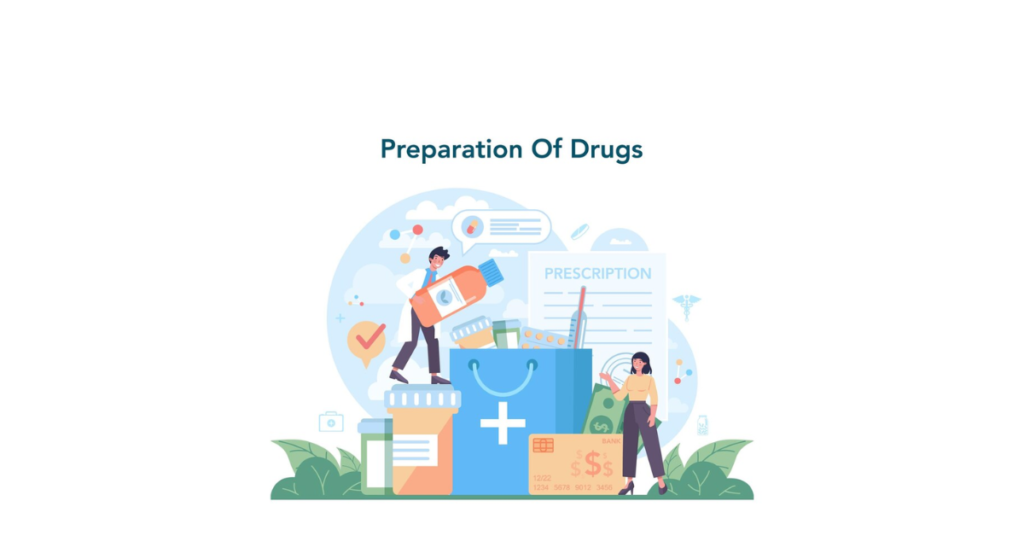Rehabilitation can help individuals by providing a supportive and structured environment for a complete recovery process. Additionally, it includes managing withdrawal symptoms and resolving the major cause behind the substance use.
Drug rehabilitation programs also involve educational factors, helping individuals understand the risks related to substance abuse and empowering them to make healthier choices and lifestyles. Through regular check-ups and therapies, individuals can gain insights into actions and develop effective approaches to navigating life without counting on substances.
Drug rehabilitation is generally the first step toward overcoming addiction and reclaiming an existent’s life. The journey in rehabilitation can be complex and challenging and requires careful navigation as well as support. Explore the transformative journey of rehabilitation for substance abuse in this blog. This detailed blog will discover the whole path of wellness by diving into colourful aspects of drug rehabilitation programs, from understanding addiction to analysing the complete treatment options available and building a support system for long-term recovery.
Understanding Addiction
Addiction is a chronic disease that affects the brain’s price system, leading to obsessive medicine-seeking despite dangerous consequences. Basically, it involves cravings for something intensive, loss of control over its use, and continuing involvement. It has a long and important impact on a person’s brain that manifests in three different ways, it depends upon the position of dependence. It’s essential to treat addiction as a medical condition rather than a moral failing, as this understanding forms the base of effective treatment approaches. By admitting the complex interplay of genetic, environmental, and cerebral factors contributing to dependence, individuals can begin to address the root causes of their substance use disorder.
Types and Key Components of Rehabilitation Programs
Inpatient Rehab
Inpatient recovery programs offer individuals intensive, round-the-time care in a residential setting. These programs are ideal for individuals with severe addiction or those who have a structured environment to overcome their substance use complaints. Inpatient installations offer a complete range of services that contain medical detoxification, individual and group therapy sessions as well as internal health issues. The nature of outpatient programs allows individuals to concentrate entirely on their recovery without dislocations and triggers present in their home environment.
Outpatient Programs
Outpatient recovery provides a more flexible approach to treatment that allows actors to attend therapy sessions while maintaining their day-to-day responsibilities similar to family commitments, work, and school. These programs are also suitable for individuals with mild to moderate addiction who don’t bear complete supervision. Inpatient services may include individual comforting and drug operations that help individuals to help relapse and effective approaches. Individuals generally attend these treatment sessions numerous times a week to reduce frequency and move presto toward complete recovery.
Sober Living Homes
Sober living homes, also known as halfway houses, provide a supportive and structured living environment for individuals transitioning from rehabilitation programs back into the community. These places offer a medicine-free atmosphere where residents can exercise relapse forestallment skills, make healthy routines, and admit support from peers who are also committed to sobriety. Sober living homes generally have house rules and expectations, similar to abstinence from drugs and alcohol, participation in household activities, and attendance at support group meetings. residents may stay in sober living homes for varying lengths of time, depending on their requirements and progress in recovery.
Treatment Options and Challenges
Choosing the right drug rehabilitation program requires careful consideration of colourful factors, including the inflexibility of dependence, treatment options, particular preferences, and available resources. Consulting with addiction specialists, healthcare professionals, and peer support groups can help individuals make informed opinions about their treatment trips. It’s essential to prioritise programs that offer substantiation- grounded treatment modalities, substantiated care plans, and a supportive, friendly environment conducive to healing. Individuals face some common challenges in their recovery journey such as emotional challenges, risk of relapse, and social problems. With a strong support system, professional guidance, and family encouragement, an individual can overcome it
Goodbye Note
We can conclude that by understanding the complications of addiction, individuals can gain an understanding of the major issues driving their drug and alcohol abuse and develop effective treatment mechanisms to address them. Through a combination of medical interventions, therapy modalities, and complete approaches to deal with challenges, individuals can heal physically, emotionally, and spiritually, laying the roots for sustainable recovery. It’s essential to ensure that the path to wellness isn’t always direct, and setbacks may occur along the way. Remember, you aren’t alone, recovery is possible and help is available.







